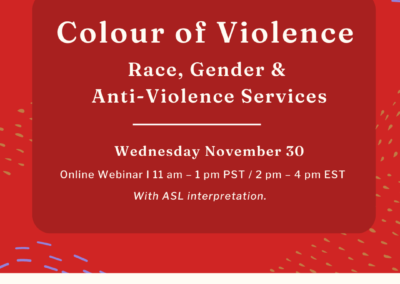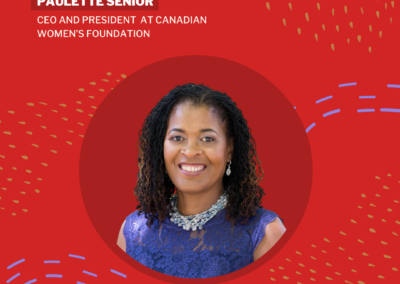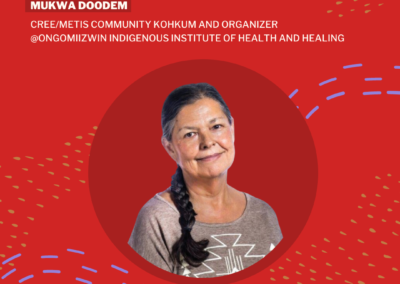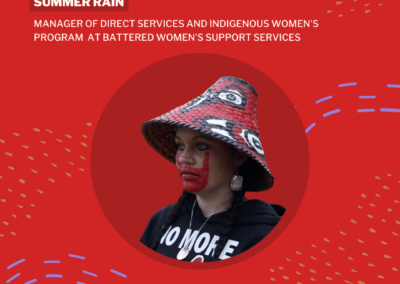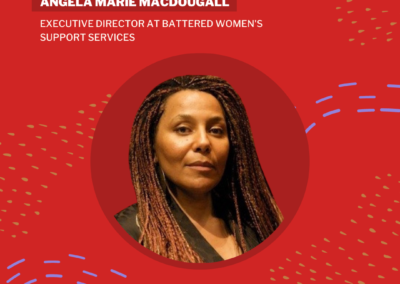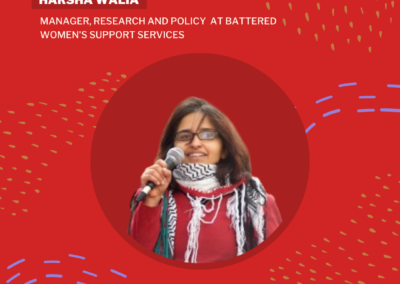
Launching “Colour of Violence: Race, Gender & Anti-Violence Services”
Battered Women’s Support Services is thrilled to announce the launch of Colour of Violence: Race, Gender & Anti-Violence Services.
Over the past year, BWSS has been engaged in a community-based research project to better understand and raise awareness on the experiences of Indigenous, Black, newcomer immigrant/refugee, and racialized survivors accessing gender-based violence services in British Columbia (B.C). You can read more about this report below.
As part of the #16DaysofActivism Against Gender-Based Violence, all are welcome to our two public launch events for this important report. Please register and spread the word!
Wednesday November 30, 2022
Online Webinar @ 11 am – 1 pm PST / 2 pm – 4 pm EST. With ASL interpretation.
Paulette Senior: CEO and President, Canadian Women’s Foundation
Leslie Spillett: Cree/Metis community kohkum and organizer, Ongomiizwin Indigenous Institute of Health and Healing
Summer Rain: Manager of Direct Services and Indigenous Women’s Program, Battered Women’s Support Services
Angela Marie MacDougall and Harsha Walia, co-authors of BWSS’s “Colour of Violence: Race, Gender & Anti-Violence Services” report

Tuesday December 6, 2022
National Day of Remembrance and Action on Violence Against Women
📍 An in-person community gathering from 6 – 8 pm PST at 312 Main Street, Vancouver.
📍 ASL interpretation. Food and refreshments. We urge attendees to wear masks and maintain social distancing.
Hosted by Melody Wise (she/they): co-author of BWSS’s “Colour of Violence: Race, Gender & Anti-Violence Services” report
& Featuring a LINE UP YOU WON’T WANT TO MISS: Deanna George │ Cecilia Point │ Deborah Baker │ Rosa Elena Arteaga (she/her) │ Wildflower Women of Turtle Island Drum Group │ Jillian Christmas │ Butterflies in Spirit with JB the First Lady │ Rabbit Richards │ Zephyr Walters (they/she/he) │ Mercedes Eng (she/her)
More about Colour of Violence: Race, Gender & Anti-Violence Services
Our Colour of Violence: Race, Gender & Anti-Violence Services report places racialized survivors at the center of anti-violence work.
“Understand that racism exists, and survivors experience it.”
– Colour of Violence survey respondent
Our report explores the extent to which gender and race influence system-based responses to gender-based violence.
Racialized survivors are not only subject to higher probabilities of gender-based violence, but also face structural barriers in accessing safety and support from violence. We conducted surveys with over 100 survivors, hosted focus groups with anti-violence workers of colour, and organized a series of public events. Through an anti-racist, decolonial, and intersectional feminist lens, we analyze the structural relationship of multiple forms of inequality constituted through and reinforcing one another.
“The services available don’t primarily serve Black, Indigenous or racialized people.”
– Colour of Violence survey respondent
We found that Indigenous, Black, newcomer immigrant/refugee, and racialized survivors in B.C face numerous barriers to accessing safety and support when they experience gender-based violence, such as lack of access to culturally safe services; mistrust of the legal system and other state systems; and being minimized or disbelieved.
“I felt unwelcome, unheard, and unable to connect. I felt like the totality of my experiences were too complex to pull apart and deal with.”
– Colour of Violence survey respondent
Indigenous, Black, and newcomer immigrant/refugee survivors face particularly heightened barriers to justice, including often being criminalized for reporting violence, having their children apprehended, or facing deportation.
“It felt like being prosecuted all over again; if the police were contacted, your situation was reported to child protection services.”
– Colour of Violence survey respondent
Our report identifies key barriers in accessing anti-violence services, and it also offers concrete best practices for service providers developing anti-violence interventions.
The report and our accompanying toolkit are intended to be used as catalysts for positive change to increase access, safety, and justice for Indigenous, Black, newcomer immigrant/refugee, and racialized survivors in this province.
This work is motivated by the urgency of our moment and the many overlapping crises for racialized survivors. We are deeply grateful to all the participants who brilliantly and courageously shared their time and insights with us. We hope you join us in honouring their strength and in amplifying their truth-telling toward action.
You can learn more about your research project and key findings here, and we look forward to seeing you at our upcoming launch events!

